
Clean Technologies
Scope & Guideline
Leading the Charge in Clean Technology Research
Introduction
Aims and Scopes
- Renewable Energy Technologies:
The journal emphasizes research on various renewable energy sources such as solar, wind, and biomass, exploring innovations in system design, efficiency improvements, and integration into existing energy grids. - Sustainable Waste Management:
Research on effective methods for waste treatment and valorization, including the recycling of materials and the development of biofuels from waste products, is a key focus area. - Energy Efficiency and Conservation:
The journal publishes studies that address energy conservation measures and technologies, including building energy efficiency, smart grid technologies, and optimization of energy systems. - Environmental Impact Assessments:
Research that evaluates the environmental impacts of various technologies and processes, utilizing life-cycle assessments and other analytical methods to promote sustainable practices. - Innovative Materials and Processes:
The journal covers advancements in materials science related to clean technologies, including biodegradable materials, energy storage systems, and the development of sustainable chemical processes.
Trending and Emerging
- Green Hydrogen Production and Utilization:
Hydrogen as a clean energy carrier is gaining significant attention, with numerous studies focused on production methods, including electrolysis and biomass conversion, highlighting its potential role in decarbonizing various sectors. - Circular Economy Practices:
Research promoting the circular economy, emphasizing waste reduction and resource efficiency, is increasingly prevalent, reflecting a growing recognition of sustainable production and consumption patterns. - Smart Grid and Energy Management Systems:
Innovations in smart grid technologies and energy management systems are trending, focusing on integrating renewable energy sources and enhancing system resilience and efficiency. - Advanced Material Recycling Techniques:
Emerging studies on innovative recycling processes and the development of high-performance materials from waste are becoming more common, showcasing the journal's commitment to sustainability in materials science. - Artificial Intelligence and Machine Learning Applications in Clean Technologies:
The integration of AI and machine learning in optimizing clean technologies and energy systems is a rapidly growing area, indicating a trend towards data-driven solutions for environmental challenges.
Declining or Waning
- Traditional Fossil Fuel Technologies:
Research related to conventional fossil fuel technologies has decreased as the focus shifts towards renewable and sustainable energy solutions. This decline indicates a broader industry transition away from fossil fuel dependency. - Basic Mechanical Engineering Applications:
Studies focusing solely on mechanical engineering without a clear link to clean technologies or sustainability are becoming less frequent, as the journal prioritizes interdisciplinary approaches that integrate environmental considerations. - Conventional Water Treatment Methods:
There has been a noticeable reduction in papers discussing traditional water treatment techniques, with a shift towards innovative and sustainable methods that align with current clean technology trends. - Single-Use Plastics and Packaging:
While still relevant, the focus on single-use plastics in packaging appears to be waning as the journal increasingly emphasizes sustainable alternatives and bioplastics, reflecting a shift in industry priorities.
Similar Journals
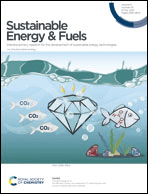
Sustainable Energy & Fuels
Pioneering Research for a Greener TomorrowSustainable Energy & Fuels is a leading journal published by the Royal Society of Chemistry, dedicated to advancing knowledge in the fields of energy engineering, fuel technology, and renewable energy solutions. With its ISSN of 2398-4902 and notable Q1 status in both Energy Engineering and Power Technology as well as Fuel Technology, this journal ranks impressively in the Scopus database, ensuring a strong platform for disseminating impactful research. The journal spans a comprehensive scope aimed at addressing the global challenges of sustainable energy, including innovative methodologies and technologies that promote environmental sustainability. Although it operates under a traditional access model, the journal is committed to providing high-quality content that engages researchers, professionals, and students alike. With significant contributions expected through 2024, Sustainable Energy & Fuels stands at the forefront of facilitating scholarly communication, inspiring advancements in energy technologies that align with sustainability goals.
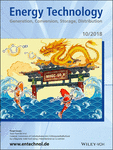
Energy Technology
Advancing the Future of Energy InnovationEnergy Technology, published by Wiley-VCH Verlag GmbH, is a prominent peer-reviewed journal dedicated to advancing the field of energy research and technology. With an ISSN of 2194-4288 and an E-ISSN of 2194-4296, this journal has made a significant impact in the energy sector, holding a Q2 category ranking in the Energy (miscellaneous) category for 2023, and proudly positioned in the 77th percentile within the Scopus ranking for General Energy. Since its inception in 2013, Energy Technology has consistently published cutting-edge research, innovations, and reviews that cater to a wide array of topics including renewable energy, sustainable technologies, and energy efficiency. The journal does not offer open access, yet it remains a key resource for researchers, professionals, and students who are committed to exploring the dynamic field of energy. The journal's efforts to disseminate rigorous scholarship make it an invaluable asset for anyone looking to contribute to or understand the future of energy-related technologies until 2024.

Advanced Energy and Sustainability Research
Driving Change through Open Access ResearchAdvanced Energy and Sustainability Research is a leading open-access journal published by WILEY since 2020, dedicated to advancing knowledge and understanding in the realms of energy and sustainability. With an impressive impact factor and a commitment to high-quality, peer-reviewed research, this journal serves an international audience of researchers, professionals, and students passionate about addressing critical environmental challenges. The journal encompasses a wide array of topics within environmental science and energy fields, securing notable rankings in Scopus with top percentiles across several categories, including Ecology, Energy Engineering and Power Technology, and Waste Management. Given its open-access model, Advanced Energy and Sustainability Research facilitates the dissemination of cutting-edge research, enhancing accessibility and fostering collaboration within the scientific community. This journal not only plays a pivotal role in shaping public policy and industry practices but also aims to inspire innovative solutions for sustainable development in an increasingly complex world.

Global Energy Interconnection-China
Connecting Innovations in Energy for a Sustainable FutureGlobal Energy Interconnection-China is an esteemed Open Access journal published by KEAI PUBLISHING LTD that focuses on the rapidly evolving fields of energy engineering and power technology. Since its launch in 2018, the journal has become a vital resource for researchers and professionals interested in sustainable energy solutions and innovative technologies, addressing the critical challenges facing the global energy landscape. With an impressive Q2 categorization in multiple engineering and energy-related disciplines, the journal ranks highly in Scopus, positioning itself as a leading platform for disseminating impactful research. Specifically, it excels in Automotive Engineering and Control and Systems Engineering, as evidenced by its competitive standing within the top quantiles of its fields. By leveraging its open access model, Global Energy Interconnection-China ensures that high-quality research is accessible to a worldwide audience, fostering collaboration and advancements in renewable energy, sustainability, and environmental conservation. For researchers, professionals, and students alike, this journal serves as a pivotal forum for sharing insights and innovations that shape the future of energy interconnection.

Problemele Energeticii Regionale
Empowering Energy Solutions for TomorrowProblemele Energeticii Regionale is a notable academic journal focused on the field of energy engineering and sustainable energy solutions, published by the Institute of Power Engineering, Academy of Sciences of Moldova. Since its inception in 2005, this Open Access journal has become a significant platform for disseminating research and innovations in various energy-related domains, including renewable solutions, fuel technology, and energy sustainability. While its impact factor metrics suggest it currently resides in the Q4 quartile category across multiple scopes—such as Energy Engineering, Power Technology, and Renewable Energy—it provides critical insights that can pave the way for advancements in regional energy challenges. Researchers, professionals, and students alike will find this journal an essential resource for understanding and contributing to the ongoing discourse in the energy sector. With its commitment to accessibility and knowledge sharing, Problemele Energeticii Regionale aims to foster a collaborative and informed community focused on energy innovation and sustainability.
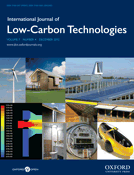
International Journal of Low-Carbon Technologies
Empowering the quest for sustainable practices.International Journal of Low-Carbon Technologies is a premier, peer-reviewed publication dedicated to advancing the field of low-carbon technologies and sustainable practices. Published by OXFORD UNIVERSITY PRESS, this journal serves as a vital resource for researchers, professionals, and students alike, providing insightful research and innovative solutions for a sustainable future. With its ISSN 1748-1317 and E-ISSN 1748-1325, the journal is recognized globally, boasting an impressive impact in its categories, including a Q1 ranking in Architecture and Q2 rankings in both Civil and Structural Engineering and Environmental Science as of 2023. It is open access since 2014, facilitating the dissemination of knowledge to a wider audience, and encourages critical discourse on environmental sustainability across converging disciplines. The journal’s Scopus rankings reflecting its standing—ranked #23 in Architecture (88th percentile) and #130 in Civil and Structural Engineering—underscore its importance in driving forward the scientific agenda in low-carbon technologies. As we journey from 2007 towards 2024, the International Journal of Low-Carbon Technologies remains a cornerstone for research and dialogue in reducing carbon footprints and promoting resilient infrastructure.

Journal of Modern Power Systems and Clean Energy
Exploring Cutting-Edge Technologies in Energy Engineering.Journal of Modern Power Systems and Clean Energy is a leading academic platform dedicated to advancing the fields of energy engineering, power technology, and renewable energy. Published by the prestigious STATE GRID ELECTRIC POWER RESEARCH INSTITUTE in China, this Open Access journal has been a significant contributor to the dialogue on sustainable energy solutions since its inception in 2013. With a Q1 ranking in both the Energy Engineering and Power Technology and Renewable Energy, Sustainability and the Environment categories, it serves a crucial role for researchers and professionals striving to push the boundaries of innovation in power systems and clean energy technologies. The journal’s impact is reflected in its impressive Scopus rankings, placing it in the top 10% of its categories, making it an invaluable resource for academia and industry alike. The Journal of Modern Power Systems and Clean Energy invites submission of original articles, reviews, and case studies that resonate with its mission of promoting sustainability and addressing contemporary energy challenges.
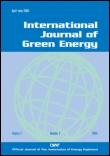
International Journal of Green Energy
Advancing sustainable solutions for a greener future.The International Journal of Green Energy is a premier publication that plays a pivotal role in the field of renewable energy and sustainability. Published by Taylor & Francis Inc, this journal, with ISSN 1543-5075 and E-ISSN 1543-5083, has established itself as a crucial platform for sharing innovative research and developments from 2005 to 2024. With a commendable Q2 ranking in the category of Renewable Energy, Sustainability and the Environment, it ranks 100 out of 270 in Scopus, positioning itself in the 63rd percentile of its field. The journal is dedicated to advancing knowledge and fostering dialogue around green technologies and sustainable practices, providing invaluable insights for researchers, industry professionals, and students alike. Although it does not offer open access options, the journal's commitment to rigorous peer review ensures that only high-quality research is published, making it an essential resource for those seeking to explore and understand the complexities of green energy solutions.
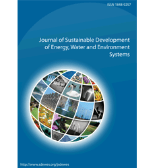
Journal of Sustainable Development of Energy Water and Environment Systems-JSDEWES
Innovating Pathways to Energy, Water, and Environmental HarmonyJournal of Sustainable Development of Energy Water and Environment Systems (JSDEWES), published by the International Centre for Sustainable Development of Energy, Water, and Environment Systems, is a premier Open Access journal that has been shaping the discourse surrounding sustainable energy, water management, and environmental systems since its inception in 2013. Based in Croatia, this esteemed journal, bearing the ISSN 1848-9257, emphasizes an interdisciplinary approach, making significant strides within its converged years from 2013 to 2024. With impressive rankings in 2023—Q3 in Energy Engineering and Power Technology, Q2 in Environmental Science (miscellaneous), and noteworthy positions in Renewable Energy, Sustainability and the Environment, and Water Science and Technology—JSDEWES showcases its commitment to advancing knowledge and innovation in crucial areas affecting our planet's sustainability. Designed for an audience of researchers, professionals, and students alike, this journal is pivotal in fostering research that enhances our understanding and implementation of sustainable practices, while its esteemed Scopus rankings further underline its impact and contribution to the field.

Advances in Energy Research
Shaping the Future of Energy with Groundbreaking Research.Advances in Energy Research is a prominent journal dedicated to the exploration and advancement of energy technologies and sustainable practices. Published by TECHNO-PRESS, this journal serves as a vital platform for researchers, professionals, and students in the energy field, featuring innovative studies and reviews that contribute to the body of knowledge surrounding energy efficiency, renewable resources, and the integration of new technologies. The journal holds a significant position in energy research and aims to facilitate the dissemination of groundbreaking findings and ideas that are pivotal for the transition toward a more sustainable energy future. Located in South Korea, with an ISSN of 2287-6316, it embraces an open access philosophy that ensures widespread availability of its content, further enhancing its impact in the academic community.